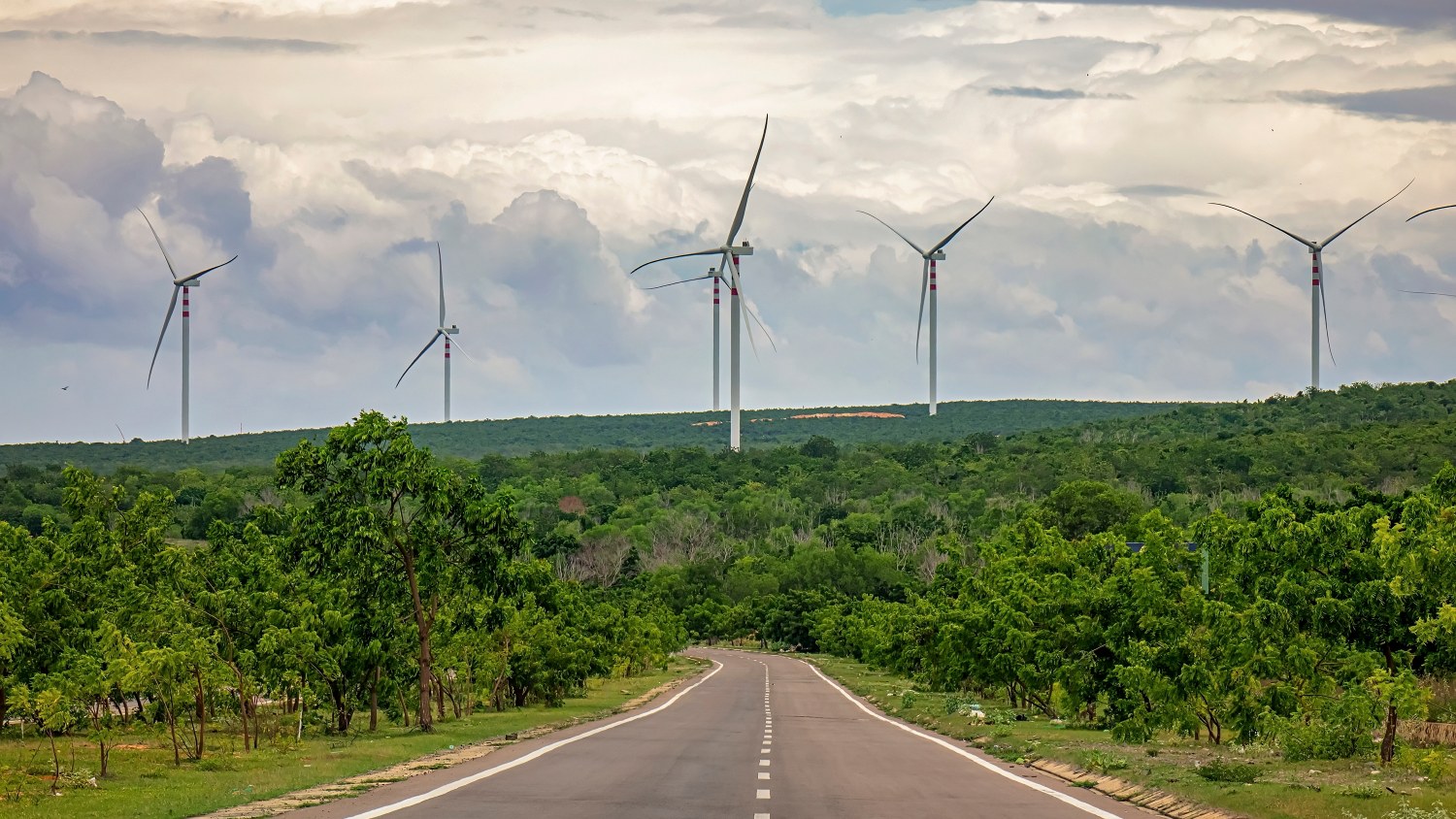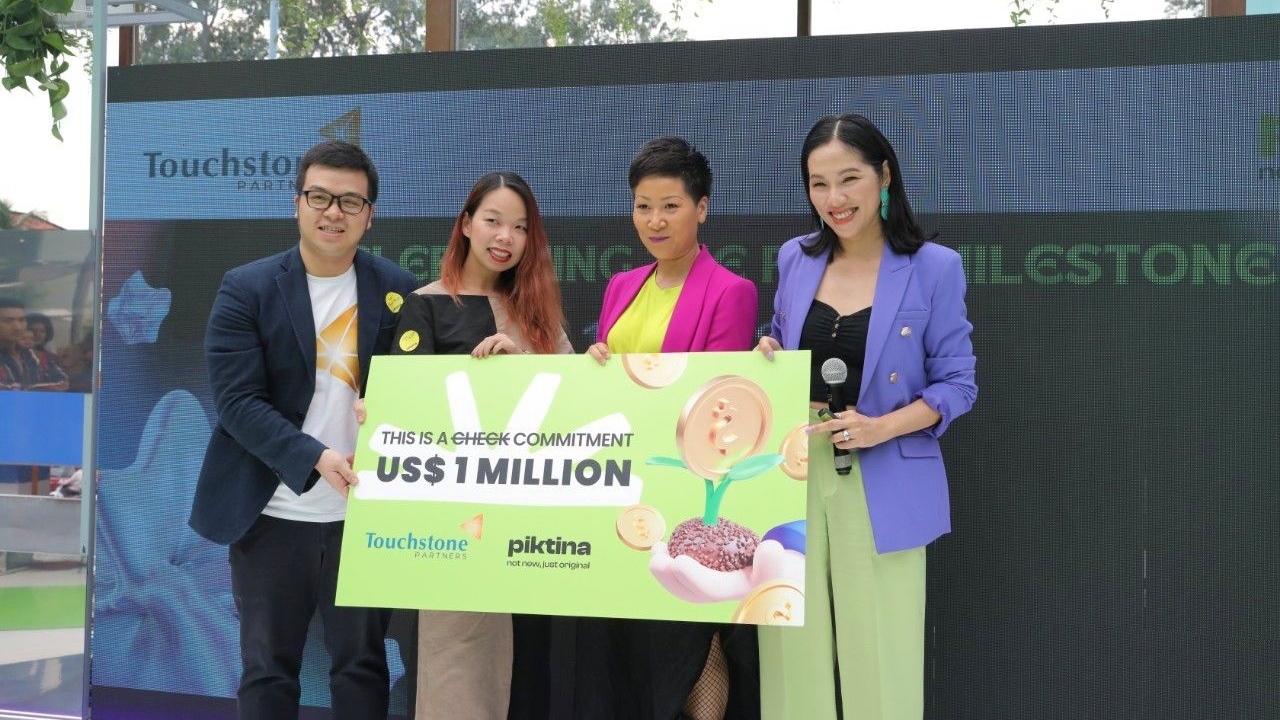The harsh realities of climate change have started to hit Vietnam hard — from extreme weather events hitting the northern coastal strip to the intensifying saline intrusion in the Mekong Delta. Recent reports also indicated the country is sinking at a worrying rate caused by excessive groundwater extraction on top of environmentally destructive human development.
Unless effectively mitigated, climate change could cost Vietnam about 12-14.5% of its GDP a year by 2050 and plunge up to one million people into extreme poverty by 2030. A full green transition is, therefore, a necessary and urgent course of action for a country that’s still starting to establish economic dominance in the region.
This year, we’ve seen Vietnam map long-term strategies toward a more sustainable future. The government’s declaration of ambitious climate and development goals proved its willingness to do the work. This has encouraged foreign governments, international organizations, and private enterprises to lend a helping hand and has drawn more attention to eco-friendly startups that have been regrettably overlooked in the past years.
A $15.5-billion deal for coal-to-clean transition

After Vietnam reaffirmed its commitment to reach net-zero emissions as soon as possible at the COP27 in Egypt last month, the Group of Seven (G7) nations — the world’s wealthiest — pledged to provide $15.7 billion in funding to help the country transition away from coal dependence.
The funding will be mobilized through the Just Energy Transition Partnership (JETP) and disbursed over the next three to five years. Half of the committed amount will come from governments, the Asian Development Bank, and the International Finance Corporation; the rest from private investors.
In an official statement, JETP said it would support Vietnam in working towards ambitious targets:
- Bringing forward the projected peaking date for all greenhouse gas emissions in Vietnam from 2035 to 2030.
- Reducing peak annual power sector emissions by up to 30%, from 240 to 170 megatons, and bringing forward the peaking date by five years to 2030.
- Limiting Vietnam’s peak coal capacity to 30.2 gigawatts, down from a current planning figure of 37 gigawatts.
- Accelerating the adoption of renewables so that renewable energy accounts for at least 47% of electricity generation by 2030, up from the current planned generation share of 36%
Over the next 12 months, Vietnam will work with the support of partner countries to develop and adopt the Vietnam JETP Resource Mobilization Plan, which will enable the implementation of the JETP funding and strategy.
“Vietnam is pioneering a new framework of collaboration to deliver a fair, inclusive energy transition towards renewables,” UN Secretary-General António Guterres said. “These partnerships are a crucial tool to unlock the emissions cuts our world needs in the 2020s. We need all hands on deck to realize an energy transition that is global, sustainable, just, inclusive, and equitable.”
Vietnam’s climate financing package is the third in a series of deals to help large coal-reliant middle-income countries accelerate their transition to low-carbon economies and provide a jumpstart towards renewable energy sources.
Finance package for clean energy projects

Aside from its commitment to share a fraction of Vietnam’s $15.5-billion JETP deal, the Asian Development Bank has also announced its financial support to massive clean energy projects in the country.
In October, ADB said it’s granting a total of $135 million climate financing package for Vinfast’s fully-electric public transport bus fleet and charging network. The homegrown auto manufacturer is pushing to speed up the production of its electric buses. About 150 electric buses are currently operating in Hanoi, Ho Chi Minh City, and Phu Quoc.
The climate financing comprises 7-year tenor financings, including a $20 million loan funded by ADB, parallel loans of $87 million facilitated by ADB as mandated lead arranger, and concessional financing of up to $28 million. The project also includes technical assistance of $950,000, focused on raising consumer awareness about e-mobility’s economic, environmental, and social impacts.
And just this week, ADB signed a new financing project worth $107 million to assist the operation of an 88 MW wind farm in the south-central province of Ninh Thuan. The project, in partnership with BIM Wind Power Joint Stock Company, will help Vietnam offset about 215,000 tons of carbon dioxide annually.
With Vietnam’s growing population demanding more energy, it is “crucial that this demand be met through clean energy that will drive sustainable economic growth,” said Jackie B. Surtani from ADB.
“This project is a crucial step toward Vietnam’s resilience and ongoing recovery by further expanding the country’s renewable energy mix and contributing to its net-zero targets.”
The package comprises $25 million from ADB’s ordinary capital resources, $25 million from Japan International Cooperation Agency, $13 million from Hong Kong Mortgage Corporation Limited, $17 million from Sumitomo Mitsui Banking Corporation, $18 million from ING Bank, and $9 million from Cathay United Bank. ADB will also administer an additional $5 million grant to help de-risk the investment.
Transport decarbonization

Vietnam is a motorbike-loving nation. With over 65 million registered motorbikes, traffic congestion and poor air quality are but typical scenarios Vietnamese witness every day. But while the sea of motorbikes has somehow added a unique charm to the country, their ubiquitous presence is a significant environmental hazard.
Aside from two-wheeled vehicles, there are also millions of cars and trucks flooding major highways — most of them powered by diesel engines.
These worrying facts may change in the next decade after the government announced in July that it would gradually reduce and stop the production, assembly, and import of vehicles using fossil fuels by 2040.
The Ministry of Transport laid a strategic framework for transport decarbonization and electric mobility. For the 2022-2030 period, Vietnam will pilot electric and green energy trains on existing railway lines, aiming to use electric-powered rail vehicles by 2050.
The new action plan also pledges to use 100% sustainable aviation fuel and green energy for Vietnamese aircraft to reduce greenhouse gas emissions.
All road vehicles should also be powered by electric or green energy by 2050. Vietnam targets to set up more charging stations and green transport infrastructure to encourage the use of electric vehicles.
In fact, around 1.3 million electric motorbikes are already running on roads. The number is foreseen to increase significantly in the coming years as more concrete policies and tax incentives are set in place.
Private enterprises’ sustainability pledge

With Vietnam now strictly imposing private enterprises to follow a more environment-friendly growth roadmap, local and foreign-owned companies have been actively putting sustainability at the forefront of their operations.
Private enterprises such as HEINEKEN, Nestle, Coca-Cola, and Vinamilk were even honored by the Vietnam Chamber of Commerce and Industry for their efforts in implementing the circular economy model and adopting climate change responses. Named as top sustainable businesses in Vietnam, these companies acknowledge their responsibility toward the environment and Vietnamese society and are taking giant steps toward making a positive impact.
According to VCCI president Pham Tan Cong, “sustainable, responsible business is the foundation for breakthrough development and is a critical factor in enhancing the competitiveness of enterprises.”
HEINEKEN Vietnam, specifically, uses biomass energy in all of its six breweries and aims to use 100% renewable energy by 2025 – five years earlier than HEINEKEN Global. The brewing company also releases zero waste to landfills, a feat it has achieved since 2021.
Moreover, investment management firm VinaCapital allocates at least $1 billion for environment-friendly initiatives and is currently working on a $3.3 billion project to turn a coal-fired power plant into a renewable energy source, as announced by its founder Don Lam at the Industry Insights Session on ESG hosted by Vietcetera in November. VinaCapital also makes multimillion-dollar investments in Vietnamese companies that want to help Vietnam go green.
To further push the private sector’s ESG investments, the Ministry of Planning and Investment partnered with USAID on a new initiative targeting small and growing businesses. By 2025, the initiative will deliver ESG technical assistance packages to 300 firms, of which ten will receive additional assistance to pilot, implement or scale their innovative ESG business concepts.
“[This project] will help small businesses improve their competitiveness and innovation, overcome constraints, and chart a path for sustainable growth and job creation and contribute to Vietnam’s prosperity,” said USAID Assistant Administrator for Asia Michael Schiffer at a business forum in Hanoi.
Growing recognition of environment-focused startups

Fintech and edtech startups are usually the apple of the eye of venture capitalists and angel investors. But this year, we saw several investments poured into the small but growing eco-focused startup community.
As a matter of fact, private funding for climate technology startups in Southeast Asia reached $1.1 billion this year, data from Deal Street Asia show. This is the first time the segment raised more than a billion dollars in a year, marking a significant momentum for the climate tech space.
Vietnamese electric motorbike startup Dat Bike raised an additional $8 million in funding in November, just seven months after it secured more than $5 million series A round — lending support to the country’s sustainable transport goals.
Dat Bike’s central vision is to convert all gasoline-powered motorbikes in Vietnam and Southeast Asia to electric. The startup uses lithium-ion batteries, considered non-toxic and up to 80% recyclable.
Fashion recommerce platform Piktina also bagged fresh capital this year to accelerate its growth and refine its business model. Piktina is a digital merchandise playground that specializes in previously owned fashion items. Through the Piktina platform, buyers and sellers can easily connect as they free up closets. They aim to raise awareness of overconsumption and instill sustainability values in the community to reduce fashion waste and carbon emissions.
The emergence of startups fighting against climate change in their own innovative ways and clean tech solutions propelled Earth Venture to establish its presence in Vietnam in March. The venture capital fund focuses purely on tech startups that bring digital solutions to climate challenges.
“While some people emphasize the role of new game-changing technologies, we believe that if we can scale all the clean tech innovations we currently possess, we could greatly speed up our way to a net-zero economy,” Tien Nguyen, general partner at Earth Venture, told Vietcetera.
Vietnam’s eco-focused startup community and the volume of investment they get is considerably limited, said Tien. But he’s positive sustainability will become a prominent startup trend in the coming years.
“The ultimate goal of investment is to bring prosperity, but there is no prosperity on a dead planet.”



